Insulin: A Primer
Insulin is a hormone that regulates the levels of sugar in your blood. When you eat a meal, the carbohydrate in the meal is broken down into glucose (a sugar used as energy by your cells). The glucose enters your blood. Your pancreas senses the rising glucose and releases insulin. Insulin allows the glucose to enter your liver, muscle, and fat cells. Once your blood glucose starts to come back down, insulin levels come back down too. This cycle happens throughout the day. You eat a meal, glucose goes up, insulin goes up, glucose goes down, and insulin goes down. Insulin levels are typically lowest in the early morning since it's usually been at least 8 hours after your last meal.
Insulin doesn't just regulate blood sugar. It has other effects as well. For example, it stimulates your muscles to build new protein (a process called protein synthesis). It also inhibits lipolysis (the breakdown of fat) and stimulates lipogenesis (the creation of fat).
It is the latter effect by which insulin has gotten its bad reputation. Because carbohydrate stimulates your body to release insulin, it has caused some people to argue that a diet high in carbohydrate will cause you to gain fat. Their reasoning, in a nutshell, goes like this:
High Carbohydrate Diet -> High Insulin -> Increased Lipogenesis/Decreased Lipolysis -> Increased Body Fat -> Obesity
Using this same logic, they argue that a low carbohydrate diet is best for fat loss, because insulin levels are kept low. Their logic chain goes something like this:
Low Carbohydrate Diet -> Low Insulin -> Decreased Lipogenesis/Increased Lipolysis -> Decreased Body Fat
However, this logic is based on many myths. Let's look at many of the myths surrounding insulin.
MYTH:A High Carbohydrate Diet Leads to Chronically High Insulin Levels
FACT:Insulin Is Only Elevated During the Time After a Meal In Healthy Individuals
One misconception regarding a high carbohydrate intake is that it will lead to chronically high insulin levels, meaning you will gain fat because lipogenesis will constantly exceed lipolysis (remember that fat gain can only occur if the rate of lipogenesis exceeds the rate of lipolysis). However, in healthy people, insulin only goes up in response to meals. This means that lipogenesis will only exceed lipolysis during the hours after a meal (known as the postprandial period). During times when you are fasting (such as extended times between meals, or when you are asleep), lipolysis will exceed lipogenesis (meaning you are burning fat). Over a 24-hour period, it will all balance out (assuming your are not consuming more calories than you are expending), meaning you do not gain weight. Here's a graph showing how this works:
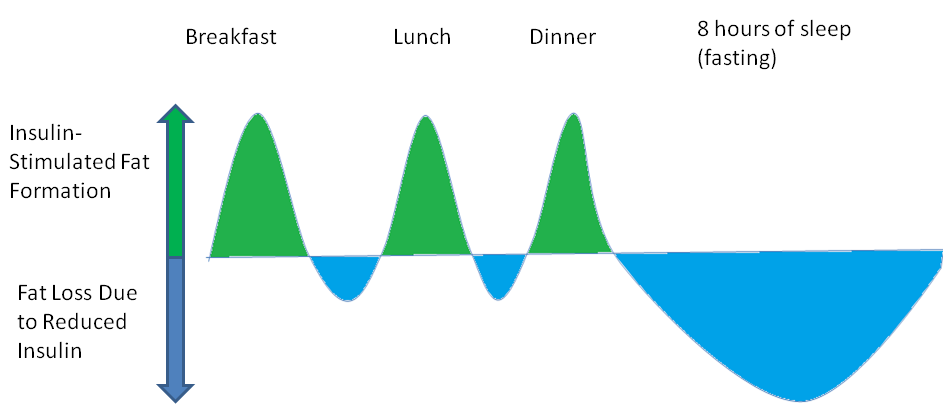
After meals, fat is deposited with the help of insulin. However, between meals and during sleep, fat is lost. Fat balance will be zero over a 24-hour period if energy intake matches energy expenditure.
This is just a rough chart that I made, but the green area represents the lipogenesis occuring in response to a meal. The blue area represents lipolysis occuring in response to fasting between meals and during sleep. Over a 24-hour period, these will be balanced assuming you are not consuming more calories than you expend. This is true even if carbohydrate intake is high. In fact, there are populations that consume high carbohydrate diets and do not have high obesity rates, such as the traditional diet of the Okinawans. Also, if energy intake is lower than energy expenditure, a high carbohydrate diet will result in weight loss just as any other diet.
MYTH: Carbohydrate Drives Insulin, Which Drives Fat Storage
FACT: Your Body Can Synthesize and Store Fat Even When Insulin Is Low
One of the biggest misconceptions regarding insulin is that it's needed for fat storage. It isn't. Your body has ways to store and retain fat even when insulin is low. For example, there is an enzyme in your fat cells called hormone-sensitive lipase (HSL). HSL helps break down fat. Insulin suppresses the activity of HSL, and thus suppresses the breakdown of fat. This has caused people to point fingers at carbohydrate for causing fat gain.
However, fat will also suppress HSL even when insulin levels are low. This means you will be unable to lose fat even when carbohydrate intake is low, if you are overeating on calories. If you ate no carbohydrate but 5,000 calories of fat, you would still be unable to lose fat even though insulin would not be elevated. This would be because the high fat intake would suppress HSL. This also means that, if you're on a low carbohydrate diet, you still need to eat less calories than you expend to lose weight.
Now, some people might say, "Just try and consume 5000 calories of olive oil and see how far you get." Well, 5000 calories of olive oil isn't very palatable so of course I won't get very far. I wouldn't get very far consuming 5,000 calories of pure table sugar either.
MYTH: Insulin Makes You Hungry
FACT: Insulin Suppresses Appetite
It is a well known fact that insulin acutely suppresses appetite. This has been demonstrated in dozens and dozens of experiments. This will be important when we talk about the next misconception...
MYTH: Carbohydrate Is Singularly Responsible for Driving Insulin
FACT: Protein Is a Potent Stimulator of Insulin Too
This is probably the biggest misconception that is out there. Carbohydrates get a bad rap because of their effect on insulin, but protein stimulates insulin secretion as well. In fact, it can be just as potent of a stimulus for insulin as carbohydrate. One recent study compared the effects of two different meals on insulin. One meal contained 21 grams of protein and 125 grams of carbohydrate. The other meal contained 75 grams of protein and 75 grams of carbohydrate. Both meals contained 675 calories. Here is a chart of the insulin response:
Now here's a chart of the blood sugar response:
You can see that, despite the fact that the blood sugar response was much higher in the meal with more carbohydrate, the insulin response wasn't higher. In fact, the insulin response was somewhat higher after the high protein meal, although this wasn't statistically significant.
Some people might argue that the "low-carb" condition wasn't really low carb because it had 75 grams of carbohydrate. But that's not the point. The point is that the high-carb condition had nearly TWICE as much carbohydrate, along with a HIGHER glucose response, yet insulin secretion was slightly LOWER. The protein was just as powerful at stimulating insulin as the carbohydrate.
I can also hear arguments coming like, "Yeah, but the insulin response is longer and more drawn out with protein." That wasn't true in this study either.
You can see in the chart that there was a trend for insulin to peak faster with the high protein condition, with a mean response of 45 uU/mL at 20 minutes after the meal, versus around 30 uU/mL in the high carb condition.
This tendency for a higher insulin response was associated with a tendency towards more appetite suppression. The subjects had a tendency towards less hunger and more fullness after the high protein meal:

Comparison of low protein, high carb and high protein, low carb meals and their effects on hunger and fullness
Here's the results of another study that compared the effects of 4 different types of protein on the insulin response to a meal. This study was interesting because they made milkshakes out of the different proteins (tuna shakes???? YUCK!!!!! Of course some people may remember the tuna shake recipes from the misc.fitness.weights days). The shakes contained only 11 grams of carbohydrate, and 51 grams of protein. Here's the insulin response to the different shakes:
You can see that all of these proteins produced an insulin response, despite the fact that the carbohydrate in the shake was low. There was also different insulin responses between the proteins, with whey producing the highest insulin response.
Now, some might argue that the response is due to gluconeogenesis (a process by which your liver converts protein to glucose). The thought is that the protein will be converted to glucose, which will then raise insulin levels. As I mentioned earlier, people will claim that this will result in a much slower, more drawn-out insulin response, since it takes time for your liver to turn protein into glucose. However, that's not the case, because the insulin response was rapid, peaking within 30 minutes and coming back down quickly at 60 minutes:
This rapid insulin response was not due to changes in blood glucose. In fact, whey protein, which caused the greatest insulin response, caused a drop in blood glucose:
The insulin response was associated with appetite suppression. In fact, the whey protein, which had the highest insulin response, caused the greatest suppression of appetite. Here's a chart showing the calorie intake of the subjects when they ate lunch 4 hours after drinking the shake:
The subjects ate nearly 150 calories less at lunch when they had whey protein, which also caused the greatest insulin response. In fact, there was an extremely strong inverse correlation between insulin and food intake (a correlation of -0.93).
Here's data from another study that looked at the insulin response to a meal that contained 485 calories, 102 grams of protein, 18 grams of carbohydrate, and almost no fat:
You can see that the insulin response was exaggerated in the obese subjects, probably due to insulin resistance. Here's a chart of the blood glucose response. You can see there was no relationship between the glucose response and insulin, which was similar to the study discussed earlier.
The fact is that protein is a potent stimulator of insulin secretion, and this insulin secretion is not related to changes in blood sugar or gluconeogenesis from the protein. In fact, one study found beef to stimulate just as much insulin secretion as brown rice. The blood sugar response of 38 different foods could only explain 23% of the variability in insulin secretion in this study. Thus, there's a lot more that's behind insulin secretion than just carbohydrate.
So how can protein cause rapid rises in insulin, as shown in the whey protein study earlier? Amino acids (the building blocks of protein) can directly stimulate your pancreas to produce insulin, without having to be converted to glucose first. For example, the amino acid leucine directly stimulates pancreas cells to produce insulin, and there's a direct dose-response relationship (i.e., the more leucine, the more insulin is produced).
Some might say, "Well, sure, protein causes insulin secretion, but this won't suppress fat-burning because it also causes glucagon secretion, which counteracts insulin's effects." I mentioned earlier how insulin will suppress lipolysis. Well, some people think that glucagon increases lipolysis to cancel this out.
The thought that glucagon increases lipolysis is based on 3 things: the fact that human fat tissue has glucagon receptors, the fact that glucagon increases lipolysis in animals, and the fact that glucagon has been shown to increase lipolysis in human fat cells in vitro (in a cell culture). However, what happens in vitro isn't necessarily what happens in vivo (in your body). We have a case here where newer data has overturned old thinking. Research using modern techniques has shown that glucagon does not increase lipolysis in humans. Other research using the same techniques has shown similar results. I will also note that this research failed to find any lipolytic effect in vitro.
It should be remembered why glucagon is released in response to protein in the first place. Since protein stimulates insulin secretion, it would cause a rapid drop in blood glucose if no carbohydrate is consumed with the protein. Glucagon prevents this rapid drop in blood sugar by stimulating the liver to produce glucose.
Insulin: Not Such a Villain After All
The fact is that insulin is not this terrible, fat-producing hormone that must be kept as low as possible. It is an important hormone for appetite and blood sugar regulation. In fact, if you truly wanted to keep insulin as low as possible, then you wouldn't eat a high protein diet...you would eat a low protein, low carbohydrate, high fat diet. However, I don't see anybody recommending that.
I'm sure some are having some cognitive dissonance reading this article right now. I know because I experienced the same disbelief years ago when I first discovered this paper and how protein caused large insulin responses. At the time, I had the same belief that others have...that insulin had to be kept under control and as low as possible, and that spikes in insulin were a bad thing. I had difficulty reconciling that study and my beliefs regarding insulin. However, as time went on, and as I read more research, I learned that my beliefs regarding insulin were simply wrong.
Now, you may be wondering why refined carbohydrates can be a problem. Many people think it's due to the rapid spikes in insulin. However, it's obviously not the insulin, because protein can cause rapid spikes in insulin as well. One problem with refined carbohydrate is a problem of energy density. With refined carbohydrate, it is easier to pack a lot of calories into a small package. Not only that, but foods with high energy density are often not as satiating as foods with low energy density. In fact, when it comes to high-carbohydrate foods, energy density is a strong predictor of a food's ability to create satiety (i.e., low-energy density foods create more satiety). There are other issues with refined carbohydrate as well that are beyond the scope of this article.
The bottom line is that insulin doesn't deserve the bad reputation it's been given. It's one of the main reasons why protein helps reduce hunger. You will get insulin spikes even on a low-carb, high-protein diet. Rather than worrying about insulin, you should worry about whatever diet works the best for you in regards to satiety and sustainability. As mentioned in a previous article, individual responses to particular diets are highly variable and what works for one person will not necessarily work for another. I will be writing a post in the future on the need for individualized approaches to nutrition.
Click here to read part 2 of this series on insulin.

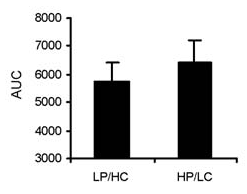
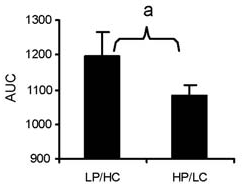

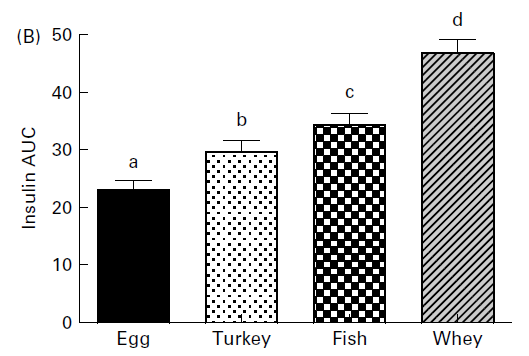
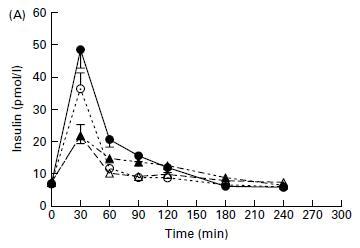
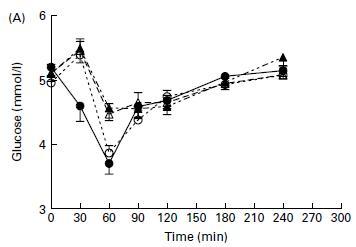
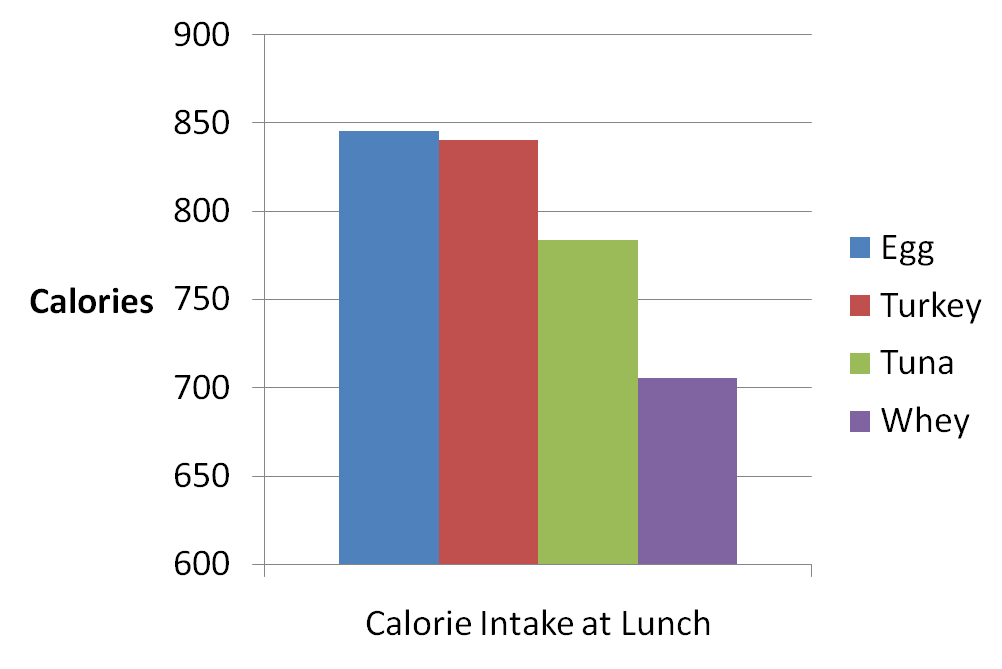
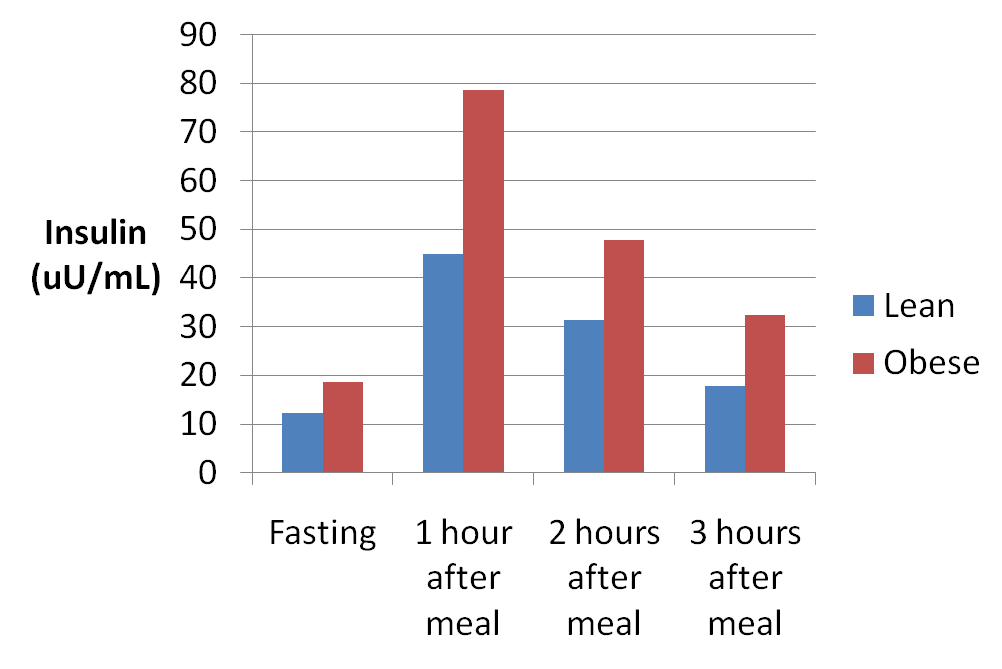
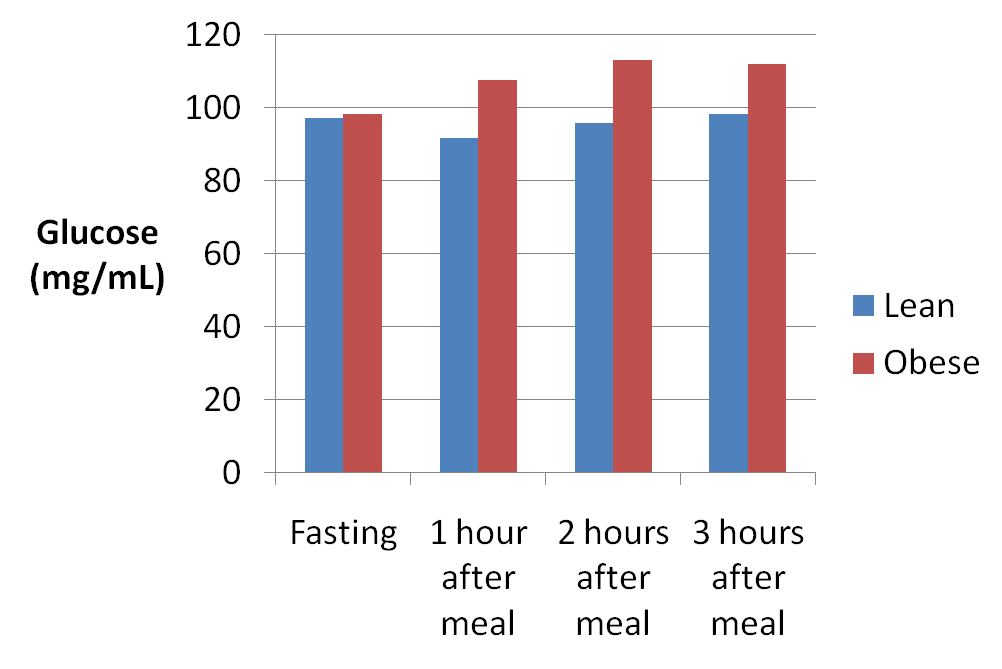
Excellent article, very well researched and educational, Thanks a lot.
Thank you!
Science be dammed Everyone I know on low carb diets lost weight and everyone I know on higher carb diets gained weight. And all my vital blood statistics vastly improve on low carb. Results are what counts. Look at our people in America eating carbs and sugars in everything. It’s terrible
Science be dammed In other words, you completely reject the best way to gain knowledge in a controlled and systematic fashion. Everyone I know on low carb diets lost weight and everyone I know on higher carb diets gained weight. “Everyone you know” is not a representative sample. I know plenty of people who lost weight on higher carb diets and gained weight on low carb diets. So why should your anecdote have any more weight than mine? This is why anecdotes are not reliable evidence. And all my vital blood statistics vastly improve on low carb. I never said… Read more »
Of course they lose weight. That’s a ton of glycogen they’re no longer receiving in their muscles and glycogen is about 3/4 water that gets stored in the cells and liver (and other locations). I can eat carbs for 2 days after being carb free and gain 10 pounds.. but did I gain 10 pounds of fat? Not possible. When you cut carbs, you will always lose weight.. but that isn’t fat unless you eat less than you consume or exercise it off. This is the same process, rather you eat carbs or not. Too many carbophobes and paleotards in… Read more »
That’s not true. Glycogen/water does decrease in the first stage (usually a few days), but is not completely depleted. Muscle glycogen only goes down by a third even on the most hard-core keto WOE. A keto-adapted person preserves muscle glycogen much better under heavy load (proven by Dr. Phinney) and so that’s the optimal amount, actually. Liver glcogen (maybe about 1000g including water) is largely depleted per what you mentioned. That’s relevant for about a week in most cases. All weight loss after that is “real” and is almost exclusively FAT loss, unlike calorie deprivation which will tend more to… Read more »
You can’t deny science…… Insulin prevents fat loss. Eating low glycemic index foods and keeping insulin low is key to “unlocking” the locks on the fat stores and allowing them to break down. On a low calorie diet high protein all that is irrelevant, calories in calories out, assuming you are not over doing it with protein, you should lose fat. BUT for insulin insensitive people, that’s another issue. It is particularly more important for insulin insensitive obese people to combine exercise to low GI dieting to lose fat more so than a lean and fit person. Insulin can be… Read more »
You speak as if insulin is the only thing that causes weight gain or prevents fat loss and that’s simply not the case. People on high fat diets can still gain weight or fail to lose weight if they’re eating too many calories because even though dietary fat doesn’t require an insulin response, it will still be stored as body fat if eaten in too large a quantity. I don’t put your example down to insulin but rather the different metabolic rates and health that are determined by a variety of factors. I am only one example but when I… Read more »
You can’t deny science You are denying science right now. Did you even read the article? It pretty much refutes everything you are claiming here. Insulin prevents fat loss. False. If that were true, then people who consume large amounts of whey protein would never lose fat. Eating low glycemic index foods and keeping insulin low is key to “unlocking” the locks on the fat stores and allowing them to break down. There’s no scientific evidence that low glycemic foods enhance fat loss compared to higher glycemic foods. And fructose is low glycemic. So would that mean that you can… Read more »
FYI.. It is physiologically impossible to burn fat in the presence of insulin.
Actually you can when insulin remains high during fasting like over night you release a lot of cortisol adrenalin and glucagon when the brain is getting inadequate glucose and the organs are forced by fat cells to cont to use only fat to spare glucose for the brains exclusive use, high insulin due to resistance I figure the sugar is falling below set point due to some getting in brain while fat cells suck up a lot and insulin still being to high hence adrenalin response which I must say gives me the shakes anxiety and hunger and no sleeping… Read more »
If that were true, there would be no way for a well-controlled type 1 diabetic to ever lose weight.
You don’t back up your science fat ass. Everyone alive even that little troll Dr oz admits low carb is Jesus reincarnated. Grow up and learn some common sense fat fuck while me and my family or friends get fucking shredded eating McDonald’s cheeseburgers without bread and lost 50 lbs in 3 months you sit there losing 10 maturating to the worst hormone to modern humans (insulin)
You don’t back up your science fat ass. “Fat ass?” LOL. Care to back up your claim that I’m a “fat ass”? Everyone alive even that little troll Dr oz admits low carb is Jesus reincarnated. Everyone alive? Since when did people like Alan Aragon, Brad Schoenfeld, and other experts in the industry “admit” that “low carb is Jesus reincarnated?” LOLOLOLOL. I wouldn’t be using Dr Oz as an example, since he is one of the biggest quacks the medical establishment has ever seen. me and my family or friends get fucking shredded eating McDonald’s cheeseburgers So you and all… Read more »
Bahahahh….This article is so rediculous with the “Myth Busters” of the 80’s or anyone whose had their head in the sand about nutrional science. You’re making wildly presumptuous statements and backing them up nonetheless, with articles that don’t even agree necessarily with what you’re saying. One of them actually explained about how much PROTEIN versus carbs curbs your hunger later, therefore protein creates much more satiety. AND- of course Insulin spikes happen with protein too, duh- Insulin spikes with ALL food. And if your using like 10 grams of carbs against 52 grams of protein as example for insulin spike-… Read more »
All dairy gives me uncontrollable heartburn. I also type 2 diabetes so met form doesn’t work for me. Does whey cause acid production? The most common diabetic med. is Metforman which produces lactose. Is it the lactose that produces the acid?
Monica,
Whey does not cause acid production. Also, Metformin does not produce lactose…not sure where you got that information.
Hi, Thanks for the article. How does this apply to someone with PCOS? Running for four years. First 10K coming up. I still am just under, by a hair, of obesity. I can’t lose the weight no matter how many carbs I cut, no matter how much protein I eat, no matter what kind of diet. I’ve been to many endocrinologists, snake oil “experts,” spent *thousands* on supplements, everything you can think of. I will die from this if i can’t lose the weight. I take Metformin and tried various doses. I’m gluten free from a gluten intolrence, not getting… Read more »
Hi, Sissy,
Yes, there is hope. While people with PCOS have a more challenging time with fat loss (mainly appetite issues due to insulin resistance), it can be done. The corporate weight management program that I used to work for had success treating PCOS clients. But it took a team of people working with the individual…a physician, dietitian, behavioral therapist, and personal trainer.
Have you tried resistance training? It can really help with insulin sensitivity.
Hi James, First time I’ve visited your blog and this article is very interesting but boy am I confused! Everything I have read about insulin response (including the nutrition course I’m currently doing) says that simple carbs cause a major insulin spike followed by a fast drop leading to very low blood sugar and causing tiredness and hunger and mood disturbances. This is all wrong?? I can say that when I have eaten high amounts of simple carbs in a meal I get heart palitations and extreme feelings of lethargy, but not hunger just more carb cravings. Perhaps you can… Read more »
Oh, just to add to the first part, my course material states that simple carbs raise blood sugar and this causes insulin to be released to lower blood sugar. But if this is the case then it doesn’t explain the extreme rise in insulin from protein because protein doesn’t raise blood sugar levels in the same way simple carbs do so this adds more confusion for me…it seems that many sources say the responsibility of insulin is to lower blood sugar, so if that’s incorrect then what exactly IS it’s role? Sorry if I’m missing something or have gotten what… Read more »
Hi, Debbie,
Take a look at this article and this will help clarify insulin’s role in the body.
Hi, Debbie, Simple carbs do not always lead to insulin spikes. For example, fructose is a simple carb but causes very little insulin release. Lactose is a simple carb but does not cause big insulin surges. There is isn’t a lot of evidence that simple sugars will cause rapid rises in blood sugar, followed by rapid falls and hunger/mood disturbances. The reality is that appetite, mood, tiredness, etc are all complex issues affected by a variety of factors. Regarding people on low carb diets, the reality is that people in general are very bad at knowing how much they are… Read more »
Hi James, thanks for the reply. I’m aware that it’s glucose that affects blood sugar, I didn’t think about all the other simple carbs that don’t affect blood sugar. The thing is about blood sugar crashes that I mentioned only happens to me when I eat high carb foods. A meal with meat, veg and fat doesn’t affect me badly in that way. I also did a little experiment this week where I was eating mostly potatoes and I had awful hypoglycemic episodes – got shaky, sweaty, ravenously hungry, fatigued and it only improved when I ate something with glucose… Read more »
Debbie,
Other simple carbs do affect blood sugar. All digestible carbohydrates affect blood sugar…they just do so to varying degrees.
Yes, some people don’t deal with carbs as well as others, but this more relates to insulin sensitivity and resistance, not insulin itself. Chronically elevated insulin is a product of insulin resistance, not the other way around. Insulin resistance has many causes, but in general, too much sugar only significantly contributes to insulin resistance if calorie intake exceeds calorie expenditure, unless the sugar intake is insanely high.
Hi James, thanks for clarifying about IR. It’s obviously something I need to do a lot more research on because it’s something I clearly don’t understand fully yet. Of course many people who eat plenty of sugar but don’t gain weight don’t seem to automatically get IR or type 2 diabetes so it makes sense for it to be in the context of calorie consumption and weight gain. I’m not IR to my knowledge – I had a GTT done when I was diagnosed with PCOS a few years ago and it came back negative for IR – but I… Read more »
Hi james, Reading your article along with several others on the topic of insulin, a question comes to my mind which i can’t really decipher on my own. After my workout which is glycogen depleting, it lasts around 4hours(no training critiquing please), I consume around 50gms of whey protein. now this dose of whey protein Post workout will elicit an insulin spike i understand that, but since i’m consuming no carbs alongside it, what would be the situation with gluconeogenisis according to you?If I put it more simply, would the dose of protein be shuttled to my muscle cells as… Read more »
Mann, the consumption of purely whey protein, and little to no carbs, will cause insulin release along with simultaneous release of glucagon. This will stimulate gluconeogenesis in the liver to help prevent hypoglycemia, which would occur in the case of the insulin surge if you didn’t get the simultaneous gluconeogenesis.
You comment that “However, fat will also suppress HSL even when insulin levels are low. This means you will be unable to lose fat even when carbohydrate intake is low, if you are overeating on calories.”
But… when insulin levels are low activation of LPL is upgraded, which does not breakdown fat inside adipose tissue but releases it from the fat cells into the bloodstream where it is easily taken up into muscle cells and used as energy there. This is a much more efficient way of “losing” fat, wouldn’t you say so?
Adam, The activity of LPL does not exist in a vacuum. There is complex interplay between LPL, HSL, and various other hormones and other factors in the body that regulate fat metabolism (such as catecholamines). This is why it is a mistake to focus on a single hormone or enzyme. Also, keep in mind that LPL is only responsible for breaking down triglycerides into component fatty acids. This does NOT mean those fatty acids will be oxidized. In fact, those fatty acids will simply be repackaged back into triglycerides, unless they get oxidized due to the need to obtain energy… Read more »
Hi James, amaazing post, very interesting, i’d like to make you a question,
I’m 20 and i’m a fan of training using Kiefer’s Carb-Back Loading technique, which you surely know recommends eating fast-digesting carbs after exercise. I understand that this happens because the insulin spike caused by those carbs drives those carbs into muscle as glycogen after intense workout, are my thoughts right?
Another thing concerning fruit, what is “fructose” really? would it be a fast or slow-digesting type of carb? It would be great if you claryfied this for me.
PS thanks for all these info it really helps!!
Pablo,
While it is correct that your muscles are more sensitive to insulin after exercise, and will take up carbohydrate more quickly if you eat fast-digesting carbs after training, it’s not really relevant unless you are training multiple times per day. Most people don’t train the same muscles twice per day, and thus glycogen is easily replenished by the time the muscle is trained again. Thus, there is no need for “fast-acting” carbs after an intense workout.
Fructose is technically a slow-digesting carb, because it is metabolized by the liver first.
Thank you for the info James!
HI James love your stuff Quick question re insulin : I’m playing around with dextrose in my water while i weight train. And some times, not every time, i get the symptoms of low blood sugar post workout. Its usually after my shake ( 40g whey protein in water ) and before my next meal i get the trembles, get very irritated and hangry (hungry / angry )… It goes away about 15 mins after i eat carbs. Currently im using 60g of dextrose in my drink. I’m 85kg and about 8-10% body fat so i’m quite insulin sensitive My… Read more »
Brad, Insulin secretion is usually suppressed during training so you really won’t be getting too much of an insulin spike anyway from the dextrose. But, the dextrose is likely being taken up my muscles fairly quickly because of your training. Whey protein mixed with water will also be absorbed quickly as well. My thought is that you are consuming two “fast-acting” substances…dextrose, and whey…and thus there’s nothing to help maintain blood sugar and suppress hunger for an extended period of time before your next meal. My suggestion would be to include some slower acting protein along with your whey (like… Read more »
Waaaaait a second … when we drink workout shakes YOUR muscles get the calories?! Well I suppose that explains how you got so buff …
The real question: what slower acting carb would you recommend? Would maltodextrin do the trick?
And what if the goal is to eat more calories, i.e., what if being hungry after would be considered a win? Would we still want to go for more slowly digested sources of protein and carbs?
My best,
Shane
p.s. Amazing post – pumped to read through the rest of the series!
Hi, Shane,
Maltodextrin is actually not a slower acting carb. Slower acting carbs would be ones that contain some fiber, and come from whole food sources. Oatmeal would be one example.
Yes, if your goal is to ingest more calories, and you are an individual with appetite issues (meaning you have trouble eating enough to gain muscle), then getting hungry definitely would be a win.
Ah great, thank you James!